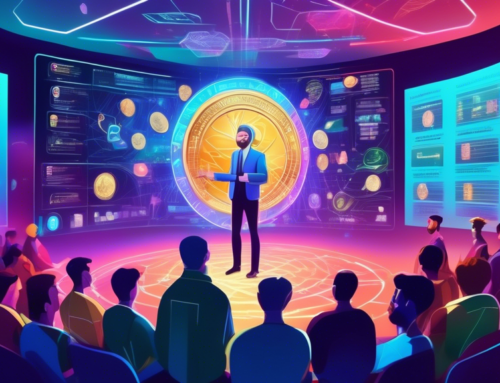In today’s rapidly evolving technological landscape, Artificial Intelligence (AI) agents emerge as a transformative force, particularly within the realm of conversational AI. These agents, powered by advanced algorithms and comprehensive data sets, are reshaping not only major industries but also penetrating small business sectors. They introduce profound enhancements in service delivery and operational management.
AI agents, encompassing both voice and text-based platforms, are revolutionizing business communication channels. They handle customer inquiries with unprecedented efficiency and manage internal workflows seamlessly, making them indispensable tools for businesses striving to remain competitive in a digital-first world.
Key Implementations of AI Agents in Small Businesses:
- Doctor’s Offices: AI receptionists efficiently manage appointment bookings and patient queries, freeing medical staff to focus more on patient care.
- Contractors: AI assists in project management and customer interactions, ensuring resource allocation is efficient and communication is clear.
- Hotels: AI concierge services enhance guest experiences by providing personalized recommendations and efficiently handling reservations.
- SaaS Companies: AI drives customer support and engagement, using data-driven insights to proactively address support tickets and anticipate customer needs.
This introduction sets the stage for a deeper exploration into the capabilities and specific applications of AI agents across various environments. We’ll examine AI voice and text agents, autonomous AI, and ‘listeners’—AI agents that seamlessly interact within communication streams without needing direct prompts. These agents are not merely technological upgrades but are crucial for the sustainability and growth of modern businesses.
Overview of AI Agents
What are AI Agents?
AI agents are software programs designed to perform tasks that typically require human intelligence. These tasks can include decision-making, speech recognition, language translation, and more. The core function of AI agents is to interact with users in a manner that mimics human behaviors, often improving efficiency and productivity in various business applications.
The Role of AI Agents in Modern Technology
AI agents play a crucial role in the automation and enhancement of customer service, data management, and operational processes. They are integral to businesses seeking to:
- Enhance Customer Interaction: AI agents provide immediate responses to customer inquiries, ensuring a seamless customer service experience.
- Automate Routine Tasks: From scheduling appointments to managing emails, AI agents handle repetitive tasks, allowing human employees to focus on more complex issues.
- Analyze Large Datasets: AI agents can process and analyze large volumes of data quickly, providing insights that help businesses make informed decisions.
Evolution of Conversational AI Agents
The evolution of AI agents is marked by significant advancements in natural language processing and machine learning. Early AI agents were simple rule-based systems that could only respond to specific commands. Today, conversational AI agents use sophisticated algorithms to understand and generate human-like responses, enabling more natural interactions.
Types of AI Agents
-
Simple Reflex Agents: Operate on immediate perceptions without considering the historical context; suitable for predictable environments.
-
Model-Based Reflex Agents: Maintain an internal state and adjust to changes based on their model of the world, allowing for effective operation under partial observability.
-
Goal-Based Agents: Make decisions based on the likelihood of achieving defined goals through potential actions, suitable for complex problem-solving environments.
-
Utility-Based Agents: Optimize their performance by considering the utility of outcomes, allowing them to make decisions that maximize perceived value.
-
Learning Agents: Adapt and improve their actions based on past experiences and feedback, enhancing their effectiveness over time through continuous learning.
-
Hierarchical Agents: Organize decision-making into a structured hierarchy, facilitating the handling of complex tasks by distributing them across different levels of responsibility.
-
Autonomous AI Agents: Operate independently without human intervention, capable of making their own decisions based on learned or programmed knowledge. These agents are particularly important in scenarios where autonomy and self-sufficiency are critical, such as remote operations or applications requiring continuous operation without human oversight.
This foundational knowledge about AI agents sets the stage for deeper discussions on specific types like AI voice and text agents, which are pivotal in transforming business communications and operations. Each type of AI agent brings distinct advantages to the table, tailored to meet the dynamic needs of various industries and sectors.
Autonomous AI Agents: The Frontier of AI Innovation
Autonomous AI Agents are at the forefront of AI technology, embodying the most advanced implementations of artificial intelligence. These agents are designed to operate independently, making decisions and performing tasks without human input, which marks a significant leap forward in AI capabilities.
What Makes Autonomous AI Agents Groundbreaking?
True Independence: Unlike other AI systems that require frequent human guidance, Autonomous AI Agents are equipped with the capability to self-manage. This independence is facilitated by advanced machine learning models that allow these agents to adapt and evolve from their experiences without outside intervention.
Complex Decision-Making: These agents can analyze vast amounts of data rapidly and make decisions based on comprehensive analyses that go beyond human capacity. This ability is critical in environments where speed and accuracy are paramount, such as emergency response or real-time financial trading.
Continuous Learning and Adaptation: Through techniques like reinforcement learning, these agents improve over time, learning from each action’s success or failure. This continuous learning capability enables them to optimize their strategies and perform increasingly complex tasks more efficiently.
Ethical and Responsible AI: As the capabilities of autonomous agents advance, so does the focus on ethical AI development. This involves designing agents that not only perform tasks effectively but also operate within ethical guidelines that protect privacy, ensure security, and promote fairness.
Large Business Example: Logistics and Supply Chain Management
Global Shipping Company: Autonomous AI Agents in a large global shipping company optimize logistics by managing and tracking shipments in real-time, predicting delivery delays, and rerouting shipments based on weather conditions or traffic data. These agents streamline supply chain operations, significantly reducing costs and improving delivery speeds.
Small Business Applications:
- Doctor’s Offices: AI agents manage appointment scheduling and patient notifications, reducing wait times and administrative overhead.
- Hotels: Utilized for managing bookings and enhancing guest services, AI agents offer personalized experiences and streamline operations, such as check-ins and check-outs.
- E-commerce Platforms: AI agents analyze customer behavior to provide personalized recommendations, manage stock levels, and handle customer service inquiries efficiently.
- Beauty Salons: These agents help schedule appointments, track customer preferences, and manage inventory, providing a smoother operation and enhanced customer service.
- Roofing Contractors: AI assists in project management from quoting to job completion tracking, improving communication with clients and ensuring projects stay on schedule.
- Automotive Repair Shops: From booking service appointments to managing parts inventory, AI agents help streamline operations and improve customer communication.
- Legal Practices: AI aids in document management, deadline tracking, and even preliminary research, enhancing the efficiency of legal services.
- Restaurants: AI systems manage reservations, optimize staffing based on forecasted customer flows, and handle inventory management for ingredients.
- Real Estate Agencies: Agents optimize property listings, manage client communications, and automate scheduling of property showings.
- Personal Training Studios: AI agents schedule training sessions, track client progress, and adjust fitness plans based on individual performance data.
Future Directions and Challenges:
As the deployment of Autonomous AI Agents grows, the focus on ethical AI development, data privacy, and security also intensifies. Businesses must address these challenges proactively to build trust and ensure the sustainable integration of AI technologies. Future developments are likely to emphasize transparency, user control over data, and the creation of regulatory frameworks to manage the impact of AI on society.
By harnessing the power of Autonomous AI Agents, businesses not only streamline their operations but also unlock new opportunities for innovation and growth, demonstrating that AI is a pivotal force in driving the future of industry across scales and sectors.
AI Agents as a Competitive Edge
Leveraging AI Agents for Strategic Advantages in Business
AI agents offer businesses critical strategic advantages by enhancing operations, personalizing customer interactions, and driving efficient decision-making processes. These intelligent agents, through their advanced capabilities, help businesses not just keep up but stay ahead in their respective industries.
- Enhanced Customer Interactions: AI agents can manage and improve customer interactions by offering 24/7 service through chatbots, providing personalized shopping experiences, and even predicting customer needs before they arise.
- Optimized Marketing and Sales: AI agents analyze vast amounts of data to identify trends and customer preferences, helping to craft targeted marketing campaigns that resonate better with audiences and optimize the sales process to increase conversion rates.
- Improved Operational Efficiency: From automating routine tasks to optimizing logistics and supply chain management, AI agents streamline operations, significantly reducing costs and improving service delivery.
Case Examples: AI in Marketing and Sales Optimization
- Real-time Customer Engagement: AI agents power tools like chatbots and virtual assistants that engage with customers in real time, providing instant responses to inquiries, which enhances customer satisfaction and retention.
- Dynamic Pricing Models: AI agents help businesses dynamically adjust prices based on market demand, competitor pricing, and other external factors to maximize revenue and remain competitive.
- Predictive Analytics: By forecasting future buying behaviors and preferences, AI agents enable companies to anticipate market trends and adjust their strategies accordingly, ensuring they always meet customer expectations and capitalize on emerging opportunities.
Future Directions for AI Agents in Competitive Landscapes
- Greater Integration Across Platforms: Future advancements in AI agents will likely focus on creating more robust systems that can seamlessly integrate across various business platforms and functions, from HR to customer service to finance.
- Advancements in Natural Language Processing: Improvements in NLP will enable AI agents to understand and process human language more effectively, allowing for more natural and intuitive interactions with customers and business users.
- Ethical AI Development: As AI agents become more pervasive in business operations, there will be an increased focus on developing these technologies responsibly, ensuring they operate within ethical guidelines and contribute positively to society.
- Collaborative AI: Looking ahead, AI agents will not only automate tasks but also collaborate with human teams to provide insights and make decisions, enhancing their role from task handlers to strategic partners.
Conclusion: The Pivotal Role of AI Agents
AI agents are pivotal in navigating the complexities of modern business environments. By automating routine tasks, providing insightful analytics, and enhancing customer interactions, AI agents not only streamline business operations but also open new avenues for innovation and growth. As businesses continue to harness the power of AI agents, they will unlock new levels of productivity, customer satisfaction, and strategic insight, shaping the future of business in the digital age.




